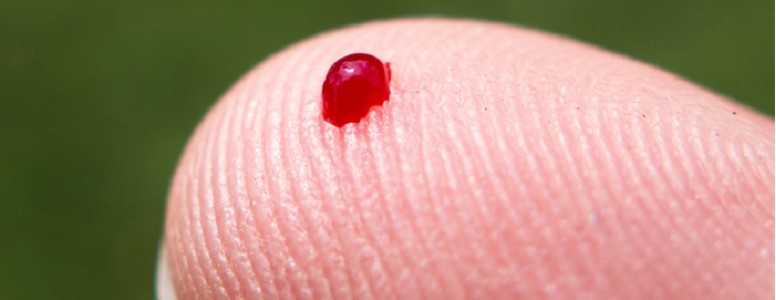The way type 2 diabetes is diagnosed could be simplified in the future after US researchers say one blood test is sufficient to identity the condition.
At the moment two blood tests are required to determine a diagnosis. But now a team from the Bloomberg School in Maryland, US, say they think just one solitary test is enough to accurately diagnose someone.
The researchers recruited 12,268 participants without diagnosed diabetes from the Atherosclerosis Risk in Communities study – a long-running heart disease trial – as well as 978 with elevated fasting glucose or HbA1c. They then examined the prognostic performance of a single blood test analysing HbA1c and fasting glucose.
Study lead author Elizabeth Selvi, a professor in the Department of Epidemiology at the Bloomberg School, said: “The results of our study suggest that the two tests from one blood sample can provide adequate confirmation of diabetes, potentially allowing a major simplification of current clinical practice guidelines.”
The single test had moderate sensitivity of 54.9% and 98.1% specificity for identifying type 2 diabetes during the first five years of follow-up. The specificity then increased to 99.6% by 15 years.
These results indicate that the test was relatively successful in correctly diagnosing people who had diabetes and very good at avoiding false diagnoses for people who didn’t have type 2 diabetes.
Meanwhile, the positive predictive value was 88.7%, which indicates how likely it is that a person has diabetes when the test result is positive.
Current clinical guidelines within the US currently recommend repeated HbA1c tests to reduce the possibility of a falsely positive diagnosis. The study here had high specificity which suggests that second tests to check for false-positives may not be necessary. However, the research also suggests that if the test indicates that someone does not have diabetes, a repeat test may be needed in future to confirm this.
Prof Selvin is now hoping that her team’s results influence a change in US clinical guidelines when they are revised in early 2019.
She said: “Doctors are already doing these tests together- if a patient is obese, for example, and has other risk factors for diabetes, the physician is likely to order tests for both glucose and HbA1c from a single blood sample.
“It’s just that the guidelines don’t clearly let you use the tests from that one blood sample to make the initial diabetes diagnosis.”
The findings have been published in the journal Annals of Internal Medicine.
What's new on the forum? ⭐️
Get our free newsletters
Stay up to date with the latest news, research and breakthroughs.





